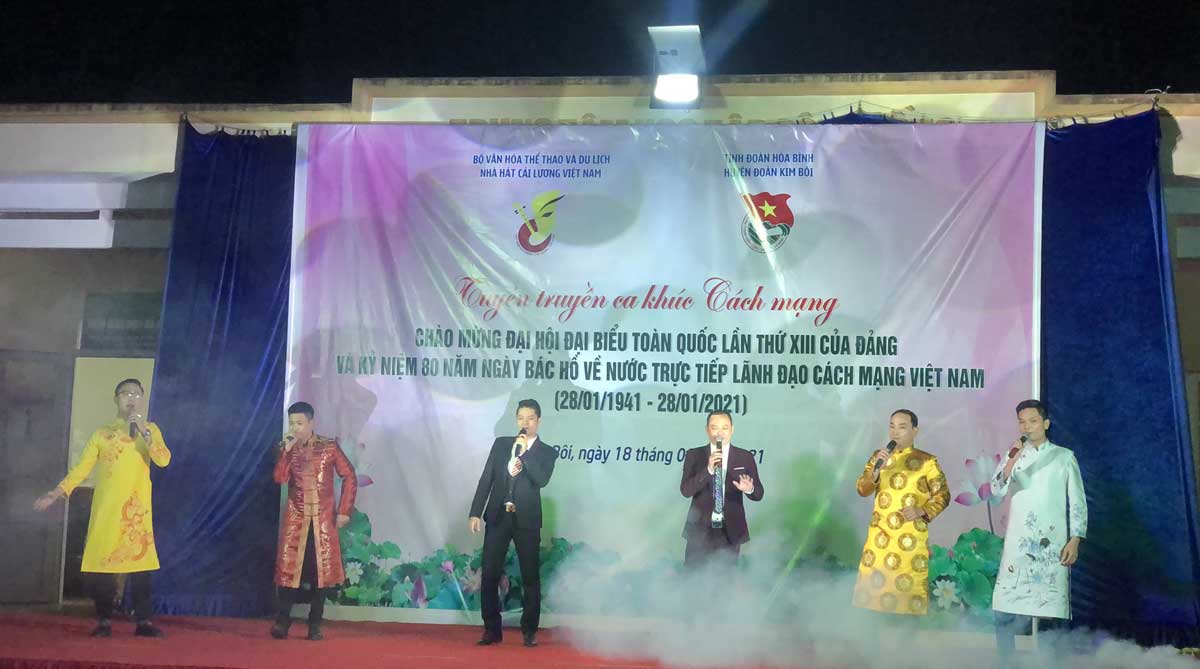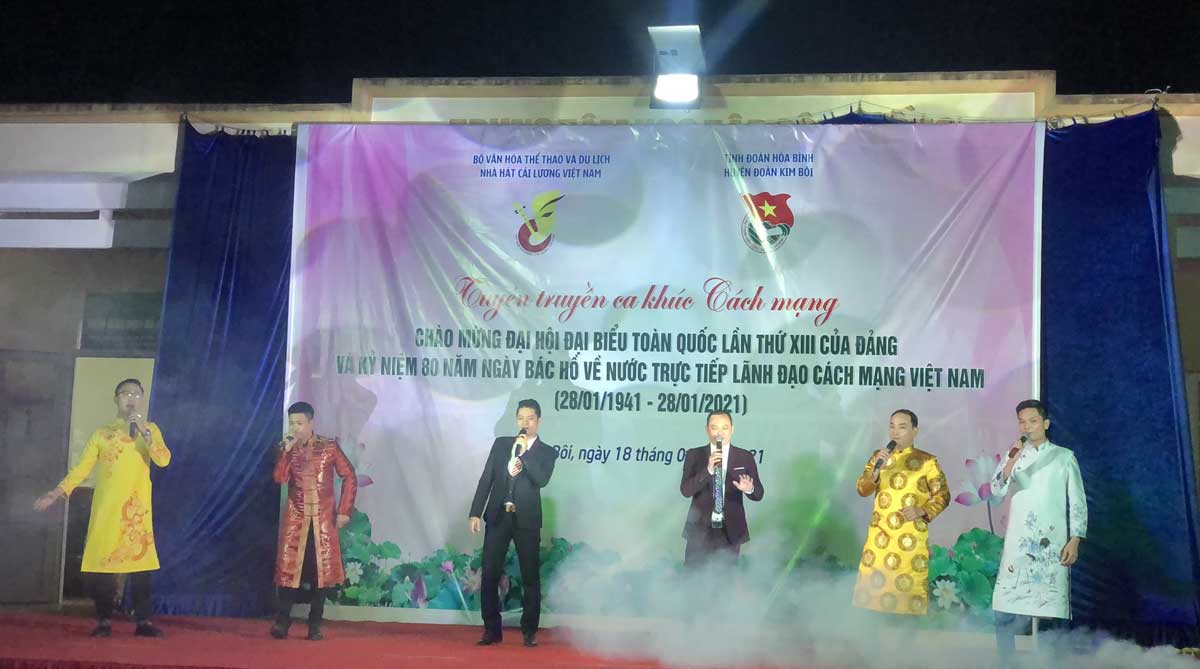
(HBO) - In Xuan Thuy commune (Kim Boi), the Youth Communist Union of Hoa Binh Province the Youth Communist Union of Kim Boi District and Cai Luong Theater of Vietnam jointly organized the propaganda program of the revolutionary song to welcome the thirteenth National Congress of the Communist Party and to celebrate the 80th anniversary when Uncle Ho's came back to the country to directly lead the Vietnamese revolution (January 28th, 1941 - January 28th, 2021).

A show
performed by the artists of Cai Luong Theaterof Vietnam.
There were
12 musical performances and 1 small drama praising the Party, the great
President Ho Chi Minh, praising the tradition of revolutionary struggle of the
nation, the love for the homeland, the people of Vietnam, the cultural identity
of the ethnic groups in Hoa Binh province, which was performed by the artists
from Cai Luong Theater of Vietnam. The program has widely propagated to the
members of the Youth Union, the teenagers and the People about the glorious
tradition of revolutionary struggle ofVietnamese nation. It demonstrates the role, the responsibility and the
determination of Hoa Binh's youth in the cause of the national construction and
defense. At the same time, it contributes to educating morality, lifestyle and
ideology for the members of the Youth Union, teenagers as well as the People of
all classes.
The
program has created an exciting atmosphere, encouraging the pride of the
officers, the members of the Youth Union and the People of all classes,
directing the beliefs to the success of the 13th National Congress of the
Communist Party, attracting the participation of more than 300 the members of
the Youth Communist Union and People.
With an increasingly vibrant and widespread emulation movement aimed at building cultured residential areas and cultured families, Yen Thuy District has been making steady progress toward improving both the material and spiritual well-being of its people, while fostering a civilized, prosperous, beautiful, and progressive community.
Once lacking recreational spaces and community facilities, Residential Group 2 in Quynh Lam Ward (Hoa Binh City) has recently received attention for the construction of a new, spacious, and fully equipped cultural house. The project followed the model of state support combined with public contributions in both labor and funding.
The "All people unite to build cultural life" movement, which has been effectively integrated with Kim Boi district’s socio-economic development goals, is fostering a lively spirit of emulation across local residential areas, hamlets, villages, public agencies, and enterprises. In addition, through the initiative, traditional cultural values are being preserved and promoted, while community solidarity and mutual support in poverty reduction and economic development are being strengthened.
A working delegation of the Hoa Binh provincial People’s Committee led by its Permanent Vice Chairman Nguyen Van Toan on June 11 inspected the progress of a project to build the Mo Muong Cultural Heritage Conservation Space linked to tourism services in Hop Phong commune, Cao Phong district.
Born and growing in the heroic land of Muong Dong, Dinh Thi Kieu Dung, a resident in Bo town of Kim Boi district, in her childhood was nurtured by the sweet lullabies of her grandmother and mother. These melodies deeply imprinted on her soul, becoming an inseparable part of her love for her ethnic group's culture. For over 20 years, this love for her hometown has driven Dung to research, collect, and pass down the cultural values of the Muong people to future generations.
In the final days of May, the Ethnic Art Troupe of Hoa Binh Province organized performances to serve the people in remote, mountainous, and particularly disadvantaged areas within the province. These were not just ordinary artistic shows, but they were the meaningful journeys aimed at spreading cultural values, enhancing the spiritual life of the people and contributing to the preservation of ethnic minority cultural identities.



